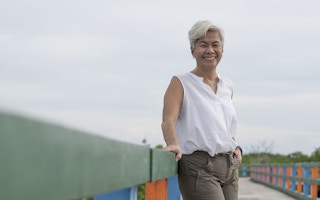Despite being among the country’s most productive sectors – the Philippines is Southeast Asia’s fourth most productive fishery – the nation’s small-scale fisherfolk are rarely afforded a platform when it comes to policymaking, even though they make up 80 per cent of the fishing industry.
To continue reading, subscribe to Eco‑Business.
There's something for everyone. We offer a range of subscription plans.
- Access our stories and receive our Insights Weekly newsletter with the free EB Member plan.
- Unlock unlimited access to our content and archive with EB Circle.
- Publish your content with EB Premium.
The Philippines’ two million fisherfolk remain among the country’s poorest workers, their livelihood heavily reliant on the health of our oceans and susceptible to the 20-plus typhoons that batter the archipelago’s coastlines every year.
Acknowledging the role of grassroots stakeholders and local government leaders when it comes to affecting change for the Philippines’ most vulnerable fishing communities, the Coastal 500 network was established by conservation non-profit Rare in 2021, under its Fish Forever programme.
Envisioned as the largest global network of mayors and decision-makers advocating for the welfare of fisherfolk and the protection of the world’s oceans, Coastal 500 now spans eight developing countries with 164 members, all of whom have pledged “to support healthy and sustainable fishing communities.”
Advocating for inclusion and locally-led solutions, Rocky Sanchez Tirona, programme lead of Coastal 500 and Fish Forever, shares that the initiative is grounded in the mission of “transforming the lives of the people who call coasts home.”
Through Coastal 500, the organisation facilitates technical support for its signatories and members, as well as peer-to-peer learning and the sharing of best practices when it comes to the protection of marine resources and the prioritisation of community-based fisheries management.
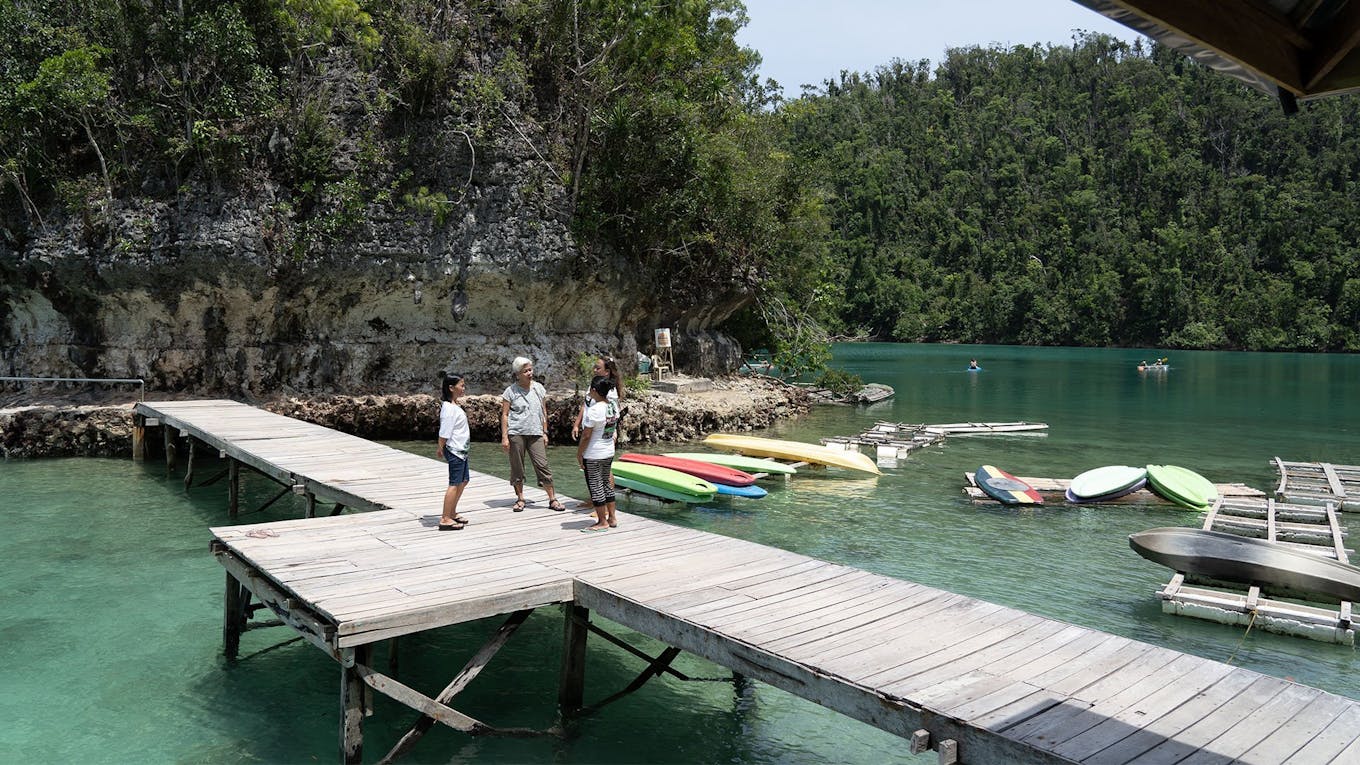
Tirona talks to local fisherfolk from one of their partner communities in the Philippines. Image: The Earthshot Prize 2023
The network hopes to represent small-scale fisherfolk affected by the extremes of climate change, working to influence government and industry stakeholders to bat for sustainable fisheries that build community prosperity while also safeguarding the environment.
Coastal 500 has been named one of the finalists of the 2023 Earthshot Prize under its “Revive Our Oceans” category. It is the sole finalist from Southeast Asia.
Five of the organisations shortlisted will be awarded US$1.2 million each to scale their solutions, with the awarding ceremony slated for this November in Singapore. Launched in 2020 by the United Kingdom’s Prince William, the Earthshot Prize seeks to recognise innovative solutions to global environmental challenges.
In this interview, Coastal 500’s Tirona talks about the network’s growth in the last two years and how her love for diving inspired her career shift and advocacy work.
“
We realised that when their leaders are inspired and motivated, they can get so much done: they help enforce the rules, they allocate funding, and they show the community that this is a priority.
Rocky Sanchez Tirona, programme lead, Coastal 500
Tell us about the work that Coastal 500 does. What was the initial impetus that spurred the establishment of the project and how has it grown since?
In the Fish Forever programme, we work to establish community-led co-management of coastal fisheries. We believe that communities have the most to gain when their resources are protected and well-managed, so they have the best incentive to agree to and comply with sustainable practices.
Early on, we realised that when their leaders are inspired and motivated, they can get so much done: they help enforce the rules, they allocate funding, and they show the community that this is a priority. We also saw how mayors would bring in their neighbours and show them what could be done. So we started bringing the mayors together and saw how powerful a network could be. In 2021, we decided to make it formal, through Coastal 500.
How large has the Coastal 500 community grown since and in what countries are you active? Is the organization eyeing to further expand its reach with the opportunities afforded by the Earthshot Prize?
Coastal 500 now has over 160 members from eight countries: Philippines, Indonesia, Palau, Micronesia, Honduras, Brazil, Guatemala and Mozambique. We have a lot of requests to expand membership and we expect to start opening up to members from non-Fish Forever sites soon, both in our current countries and in other countries. We hope the Earthshot prize will open up more opportunities to do that.
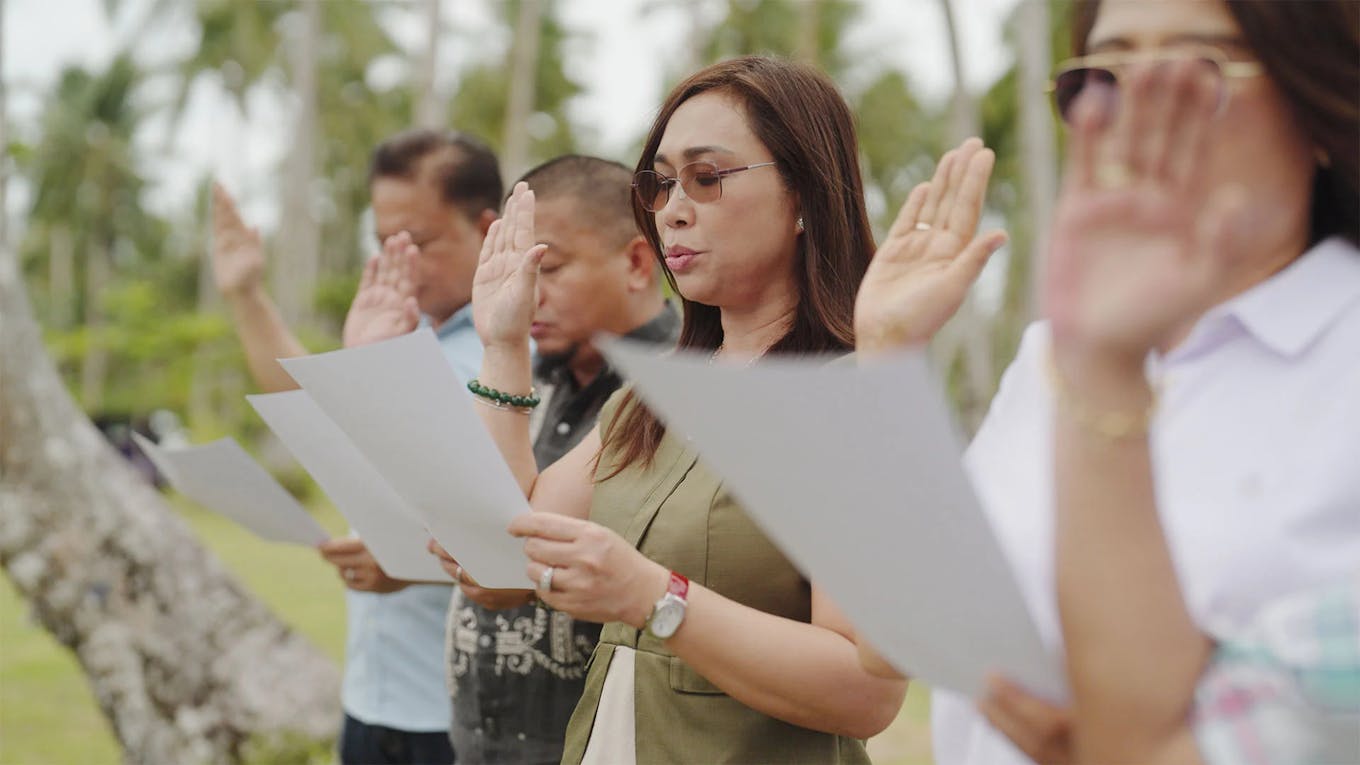
Local leaders in the Philippines take their pledge to “support healthy and sustainable fishing communities” as new signatory members of the Coastal 500 network. The organisation now spans eight developing countries with 164 members. Image: The Earthshot Prize 2023
Could you talk to us about the unique challenges of working with a diverse network of coastal stakeholders when it comes to Coastal 500? What kind of change does the endeavour hope to stem by engaging community leaders from across eight countries?
With Coastal 500, first of all, we hope to bring learning resources and connection opportunities to this wide range of leaders who are tackling very similar challenges. We hope that they will learn lessons, and be inspired by their peers. We’ve seen how some are motivated by seeing how far others have come, or how little resources they had to start with.
Second, we also want to bring them together and elevate their voices regarding their shared priorities. We’ve seen how mayors speaking out can get more attention for coastal fisheries nationally and even globally.
What are some of the key milestones and breakthroughs Coastal 500 has achieved? Could you walk us through some of the changes Coastal 500 has inspired?
In the Philippines, even before Coastal 500 was formalised, we were able to convene 300 mayors of coastal municipalities in partnership with the League of Municipalities [an organisation comprised of all town mayors in the Philippines]. They produced five resolutions submitted to the national government agencies who came to the summit, requesting action on issues like sustainable finance, illegal fishing, and climate change, and some actions have already been taken, like budget guidelines for all local governments.
In Honduras, the Coastal 500 mayors have asked for a national law to set aside 12 nautical miles exclusively for artisanal fishers. We’ve also heard a lot of stories of mayors saying they did something – like establish savings clubs [small cooperative-like organisations that fish workers can contribute to and apply for loans from] – because they saw it with another mayor in the network.
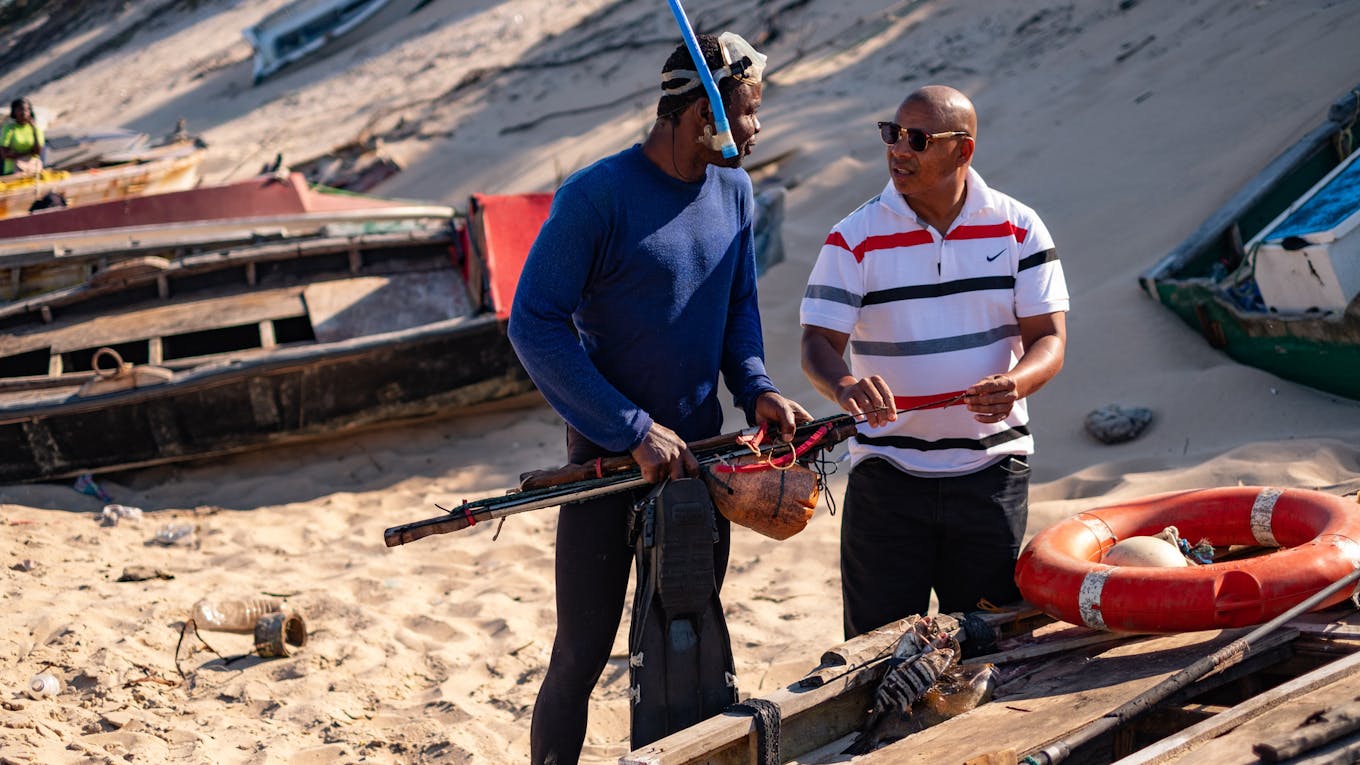
José Santos Guardiola mayor Gilbert Carrison Dilbert talks to one of his constituent fishermen in Honduras. Image: Rare
We understand that you come from an advertising background, what made you want to make the shift to advocacy work and collaborating with vulnerable coastal communities? How has the journey been so far?
I spent almost 20 years as an advertising creative but always wished I could apply those skills to issues close to my heart. Moving to Rare lets me work on understanding people and their motivations, then use those insights to inspire them to make changes that could benefit nature and people at the same time. I think I am really lucky to be able to do this every day.
Is there a reason why you’ve chosen to focus your own advocacy and sustainable development work on coastal communities? What’s your advice to young professionals or fresh graduates who are also considering going into this line of work?
I was ready to work on different issues, but I’ve always loved the ocean and have been diving all my adult life, so this was my first choice. I tell people that the environment needs all kinds of people, and there are now so many jobs open to all kinds of backgrounds and skills, so if it’s your passion, I say go for it.
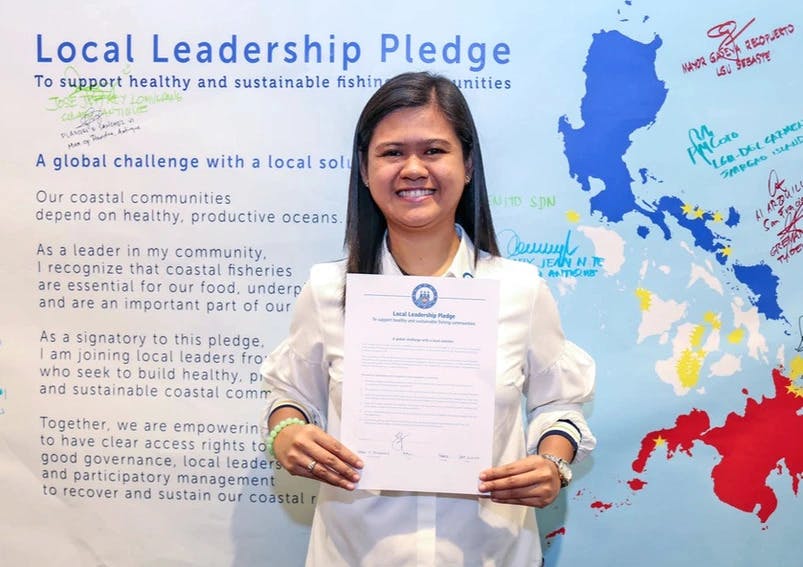
Sebaste, Aklan mayor Gaseva Recopuerto from the Philippines takes her Coastal 500 pledge. Image: Rare
What does the near future hold for Coastal 500?
There will be Earthshot Week in Singapore in November. They promise a lot of work, training and networking. Then it’s nine months as part of a fellowship where they will work with us on our plans to scale. We’re also working on putting a lot of our lessons out there for the mayors, so we should have those ready by early next year.
How has Coastal 500 been changed by the announcement as one of the finalists of the 2023 Earthshot Prize? If Costal 500 were to win one of the top prizes, what would it mean for the organisation?
It’s super exciting. And we’re really honoured to be part of such an amazing group of organisations and companies. Just being a finalist will get us access to a lot of advice, support and networking. Winning would be incredible of course: it means we can bring more mayors together and really pursue our goals to expand and scale Coastal 500.

